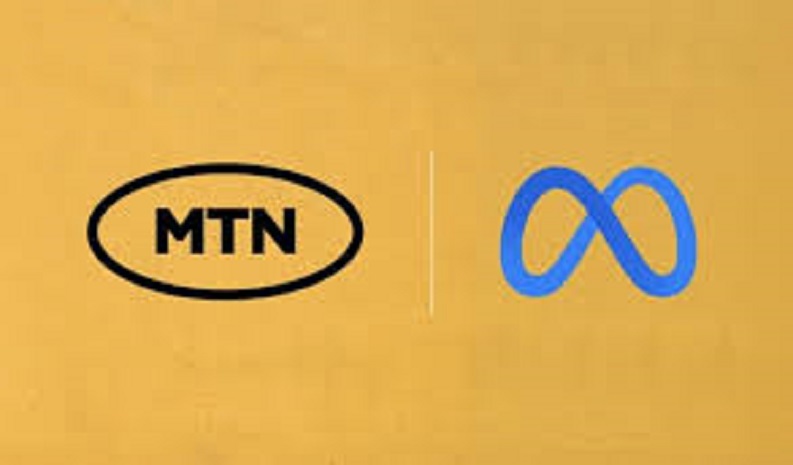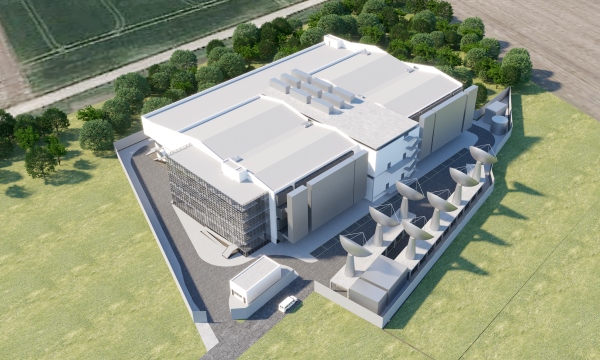Telecom
NCC Bags Web Jurist “Best Website” Award for 2017

The Nigerian Communications Commission (NCC) yesterday clinched the “Best Website Award’’ in the Ministries, Departments and Agencies (MDA) category of the Web Jurist Awards 2017.
Mr Abraham Oshadami, Head, Information Technology, NCC, said in Lagos at the presentation of the awards won by the commission for its strong online presence.
Oshadami said winning the award a second time indicated that the commission had to do more to increase its visibility online.
He said that it was fascinating to receive such an award and the commission would do all it could to improve on its service delivery in all aspects.
“On behalf of the Executive Vice Chairman of NCC and the entire staff, we appreciate Phillips Consulting Web Jurist for the recognition.
“We recognise that our website is the window to the rest of the world. The first contact many people will have in NCC is through the website.
“So, we will try as much as possible to keep the websites in a way that it will be portraying the image of the NCC.
“We are really working at ensuring that all animations, presentations are localised and easy for everybody to understand.
“We want to make sure our website is very attractive and informative,’’ Oshadami said.
The Senior Partner, Phillips Consulting Nig, Mr Oluwaseun Ngonnase, said that the firm had been assessing organisations’ websites in the last 16 years.
Ngonnase said that the Web Jurist rating and award was an initiative of Phillips Consulting aimed at measuring the effectiveness of websites in organisations.
He said that the assessment was to ensure continuous enhancement of electronic business activities and encourage better web communications practice.
Ngonnesa said for the 2017 awards, the consulting firm carried out a detailed evaluation of the websites of 210 organisations.
The 210 organisations include 20 commercial banks, 103 federal government parastatals, 29 state governments, 47 insurance companies, four telecommunication companies and seven indigenous airlines.
He said that winners were selected in categories that included aesthetics; technical aspects, website content, e-financial services, customer experience and performance.
Ngonnase urged NCC not to relent on its website presence and ensure a more interactive website, which would add value to its operations.
Telecom
MTN Champs Lagos Continental Relays: A Celebration of Sportsmanship and Fun

MTN Champs Season 3 Lagos Continental Relays concluded on April 12, 2025, with a vibrant closing ceremony at the Yabatech Sports Complex.

This event marked a historic moment in Nigerian athletics, featuring the debut of the Olympics-approved mixed relays and showcasing exceptional talent across various track and field events.
The final day was a blend of intense competition and entertainment, drawing families, friends, and MTN Nigeria staff to the stands. Guests enjoyed music, games, and the much-anticipated MTN Staff Relays, where teams from different departments competed for medals and bragging rights. The Innovators emerged victorious, clinching gold in both male and female categories.
MTN executives also joined the fun, participating in 50m sprints and emphasizing the importance of physical activity. Chief Human Resources Officer, Esther Akinnukawe, highlighted the company’s Go M.A.D (Make A Difference) campaign, encouraging individuals to stay active and impactful in their fields.
The Lagos Continental Relays attracted over 2,500 entries from 155 schools, with participants competing in four age categories: Cadet (U-14), Youth (U-17), Junior (U-20), and Senior. The event not only celebrated athletic excellence but also reinforced MTN’s commitment to nurturing future Olympians and building a legacy of sports development in Nigeria.
Season 3 of MTN Champs continues with the grand finale scheduled to take place in Uyo at the Godswill Akpabio Stadium from April 30 to May 3.
Telecom
MTN, Meta Partner to Enhance Voice and Video Calling Quality

MTN Group, Africa’s leading telecommunications provider, has joined forces with Meta to improve the quality and reliability of voice and video calls on real-time calling applications such as WhatsApp across 12 MTN markets.

The collaboration, which began at the Mobile World Congress (MWC) 2024, focuses on optimizing application-aware networks and network-aware applications to deliver a seamless and high-quality user experience. By leveraging data analytics and conducting comprehensive testing, MTN and Meta have successfully developed solutions that enhance the interaction between mobile networks and real-time calling applications.
Nigeria, MTN’s largest market, was the first to implement these enhancements. Early results indicate a remarkable 50% improvement in key performance indicators (KPIs), significantly enhancing the user experience for MTN Nigeria mobile users.
“This implementation further demonstrates our commitment to enhancing our customers’ digital experience.
“We’re pleased with the remarkable improvement in our real-time communication services, reflecting our commitment to innovative customer solutions,” said Yahaya Ibrahim, Chief Technology Officer (CTO) at MTN Nigeria.
Diego Marí, Head of Network Ecosystems Engineering at Meta, added, “The collaboration allows us to deploy advanced solutions for an unparalleled real-time experience in Nigeria and showcases our dedication to elevating service quality and improving user experience, while striving for continued efficiency in traffic delivery.”
The partnership underscores MTN and Meta’s shared vision of delivering cutting-edge solutions to enhance digital communication across Africa.
Telecom
Rack Centre Commissions Revolutionary LGS2 12MW Data Centre in Lagos

Rack Centre, West Africa’s premier Tier III carrier and cloud-neutral data centre, has unveiled its state-of-the-art 12MW IT Load Data Centre, the LGS2, in Lagos, Nigeria.

This innovative facility is set to redefine the digital landscape of Nigeria, offering unparalleled infrastructure, scalability, and reliability.
Speaking at the official commissioning on April 10, 2025, Rack Centre’s Chairman, Maher Jarmakani, emphasized the company’s dedication to innovation and sustainability.
He highlighted the LGS2 facility’s role in providing uninterrupted, energy-efficient solutions for enterprises, cloud providers, and financial institutions, reinforcing Rack Centre’s pivotal role in Nigeria’s digital transformation.
“This facility exemplifies our commitment to powering the nation’s digital future,” Jarmakani stated.
Governor of Lagos State, Babajide Sanwo-Olu, represented by his Deputy Chief of Staff, Sam Egube, praised the milestone during his keynote address.
He described the LGS2 facility as a cornerstone in Lagos’s journey toward becoming a globally competitive digital hub.
Sanwo-Olu also commended Rack Centre for prioritizing sustainability and energy efficiency in the centre’s design.
Rack Centre’s CEO, Lars Johannisson, expressed gratitude to the Lagos State Government for fostering an enabling environment to support the company’s vision.
Johannisson described the facility as a symbol of Nigeria’s commitment to cutting-edge technology, sustainable digitisation, and artificial intelligence.
He noted that with the LGS2 operational, Rack Centre’s data centre capacity would increase eightfold, solidifying its leadership in sub-Saharan Africa’s digital infrastructure space.
As a key player in Nigeria’s digital ecosystem, Rack Centre continues to connect people, businesses, and ideas, driving technological progress and cementing its legacy as a trailblazer in Africa’s digital economy.

 E-Business2 days ago
E-Business2 days agoNITDA Warns Against Fake Google Play Store

 General News2 days ago
General News2 days agoLagos Commences Integration of NIN with State Single Social Register

 News2 days ago
News2 days agoNOA Uncovers Fraud by Banks, Universities in Students Loan Scheme

 E-Financial2 days ago
E-Financial2 days agoUBA Redefines Banking with Next-Gen PoS Terminals and Revamped MONI App

 E-Financial2 days ago
E-Financial2 days agoSEC Bans Unregistered Digital Asset Exchanges, Online Forex Platforms

 E-Financial2 days ago
E-Financial2 days agoAfrica Loses $88.6Bn Yearly to Corruption- ECOWAS

 E-Financial2 days ago
E-Financial2 days agoNIBSS Heads to Court to Recover N4Bn Lost due to System Glitch

 General News2 days ago
General News2 days agoNigeria Records $6.83Bn Balance of Payments Surplus in 2024 Amid Economic Reforms



























